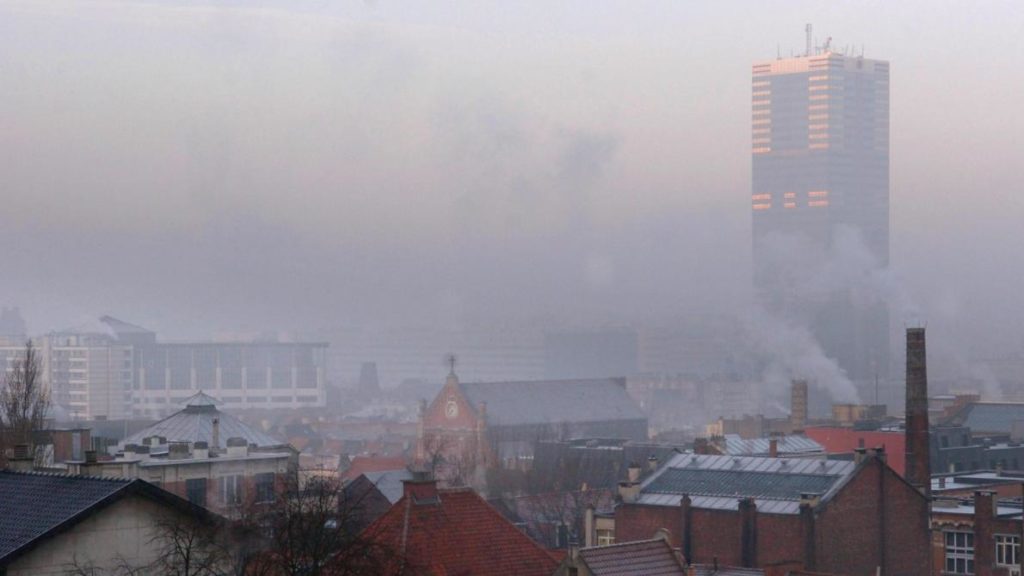Air pollution accounted for some 7,500 premature deaths in Belgium in 2019. However, across the European Union, the number of people dying prematurely as a result of dirty air is decreasing.
Of the total number of deaths, around 6,500 premature deaths in Belgium were linked to fine particulate matter with a diameter smaller than 2.5 micrometres (PM 2.5). 750 people died prematurely due to nitrogen dioxide (NO2) and 270 people due to ozone pollution (O3), according to a report by the European Environment Agency (EEA) published on Monday.
The most common causes of deaths linked to air pollution in Belgium are heart diseases and stroke, followed by lung disease and lung cancer.
Every year, exposure to air pollution is estimated to cause seven million premature deaths globally, putting it on a par with other major global health risks such as an unhealthy diet and smoking.
Related News
- COP26 Glasgow: 'Not enough is done to adapt to inevitable climate change'
- Air quality in Flanders improving, but health impact remains damaging
Across the EU, around 307,000 premature deaths were linked to exposure to fine particulate matter pollution, while another 40,400 premature deaths were attributed to chronic nitrogen dioxide exposure and 16,800 to acute ozone exposure.
However, the number of premature deaths attributed to air pollution decreased in 2019 in relation to 2018, the EEA stated, as a result of "policies to reduce emissions and improve air quality."
"Compared to 2005, in 2019 premature deaths attributed to exposure to fine particulate matter decreased by 33% in the 27 EU Member States. If this rate of reducing premature deaths is maintained, then the EU is expected to reach the Zero Pollution Action Plan target," which aims to reduce the number of premature deaths due to exposure to fine particulate matter by more than 55% by 2030.
Long way to go
According to the World Health Organisation (WHO), more needs to be done to improve the lives of people affected by pollution, as air pollution levels remain above the EU legal limits in most European countries.
"Even with improvements in air quality over the past years in our region, we still have a long way to go to achieve the levels set by the new WHO Global Air Quality Guidelines," said WHO Regional Director for Europe, Dr Hans Henri P. Kluge.
In September, the organisation put out guidelines lowering almost all the reference thresholds for key air pollutants introduced in 2005 that are harmful to health. This followed research that showed that air pollution harms human health at even lower concentrations than previously understood.
The EEA's report showed that "improving air quality to the levels recently recommended by the WHO could have prevented more than half of the premature deaths caused by exposure to fine particulate matter."
The briefing was published ahead of the EU Clean Air Forum, which will take place on 18 and 19 November 2021 and will bring together decision-makers, stakeholders and experts to reflect on the development and implementation of European, national and local air policies.

